Greek exporters endured the crisis years well in this Southern European country. Despite the focus on export markets, the decline on the domestic market passed by these companies. However, the exporters have also noticed the consequences indirectly, and these are most visible on the citrus market. Measures of the government have negative side effects.
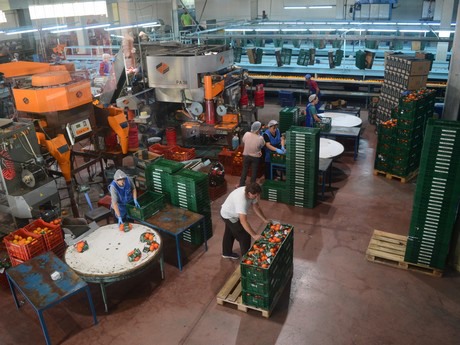
The citrus production is fractured in Greece. “Everyone owns some hectares,” says Nikos Katsaloulis, logistics & sales manager for Mitrosilis. In the past, the main income came from the citrus production, but the areas were divided among the heirs via inheritances. Because of this tradition, the Greek areas have become so small that income from oranges are a bonus for many growers. Besides, the trade of growing has become less appealing. The tax advantage of the agricultural sector has been removed and levelled with the tariffs for other sectors. “People no longer want to work in the fields,” Nikos mentions as one consequence of the measure.
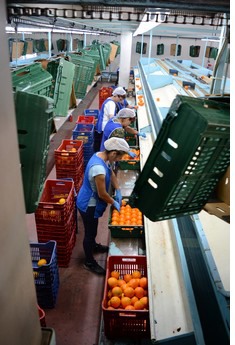 Regular citrus season expected
Regular citrus season expected
Although the country has many small growers, Mitrosilis chooses the few larger growers still left. “These growers are GlobalGAP certified.” To guarantee the quality of the citrus, selections are made among the trees. A strict inspection of the fruit at the packing station is the next step. “When the weather’s bad, we prefer to stop supplying rather than supplying bad quality,” Nikos says. “The brix and colour must be at a predetermined level.”
“Spain has less production this year, but they’ll retain a firm position,” Nikos says about the current season. “Weather permitting, we’ll continue with the Greek oranges until late March. I expect a regular season with a good production and normal sizes.” In the past two years, part of the harvest was lost due to the bad weather. Last year, the harvest was damaged by hail. In 2016, the orange trees were covered in snow for two weeks.
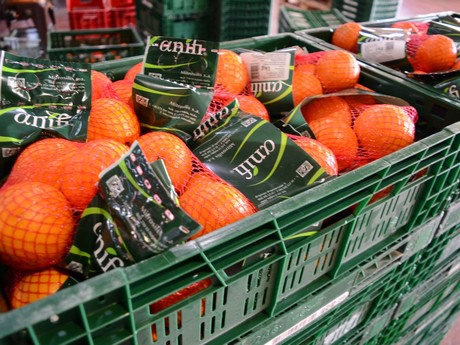
Turkish, Spanish and Egyptian competition
The Greek citrus is mostly exported to Eastern Europe. Closer to home, competition from Egypt and Turkey is increasing. “The Turkish lira was devalued, so that fruit is very cheap now. That cause problems for us on economically minded markets such as Romania and Bulgaria.” The Egyptian citrus is not in the way of Greek citrus as much. Egypt mostly exports juicing oranges to the Netherlands, a variety and market not served by the Greeks.
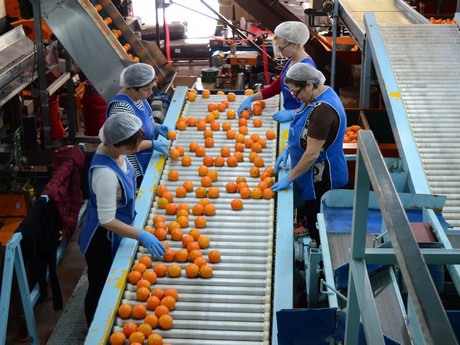
No investment capital
Nikos isn’t very positive about the future of the Greek citrus sector. “Last season, growers made hardly any money, and besides, oil prices are rising, although consumers aren’t aware of that.” The consequences of the crisis are added to that. Officially, the country is no longer hooked up to the financial drip, but consequences can still be felt. “The government is trying to prove we’ve left the crisis behind, but the Greeks don’t really notice that in their daily lives. Debt is high and people are having trouble making ends meet.” It hasn’t become any easier for companies either. Taxes have been increased, and to make matters worse, half of the taxes have to be paid in advance.
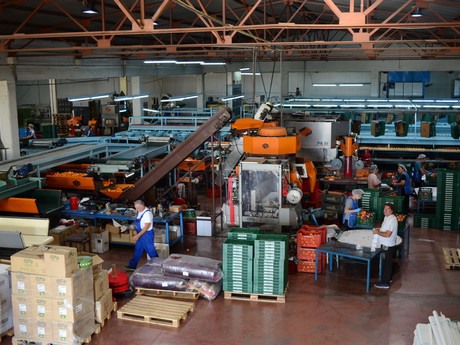
“As an exporter, we weren’t affected by the crisis,” Nikos says. However, the company did receive some blows in the years before the Greek crisis, when the economies on many export markets were struggling. “The government doesn’t have to help us, but they shouldn’t make it more difficult to do business either.”
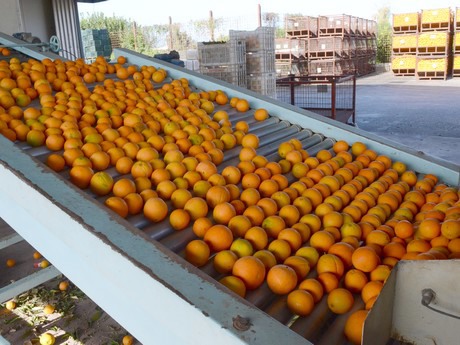
For more information:
Nikos Katsaloulis
Mitrosilis
T: +30 27 52 04 50 00
M: +30 69 47 77 55 33
F: +30 27 52 04 30 36
E: [email protected]
W: www.mitrosilis.gr
